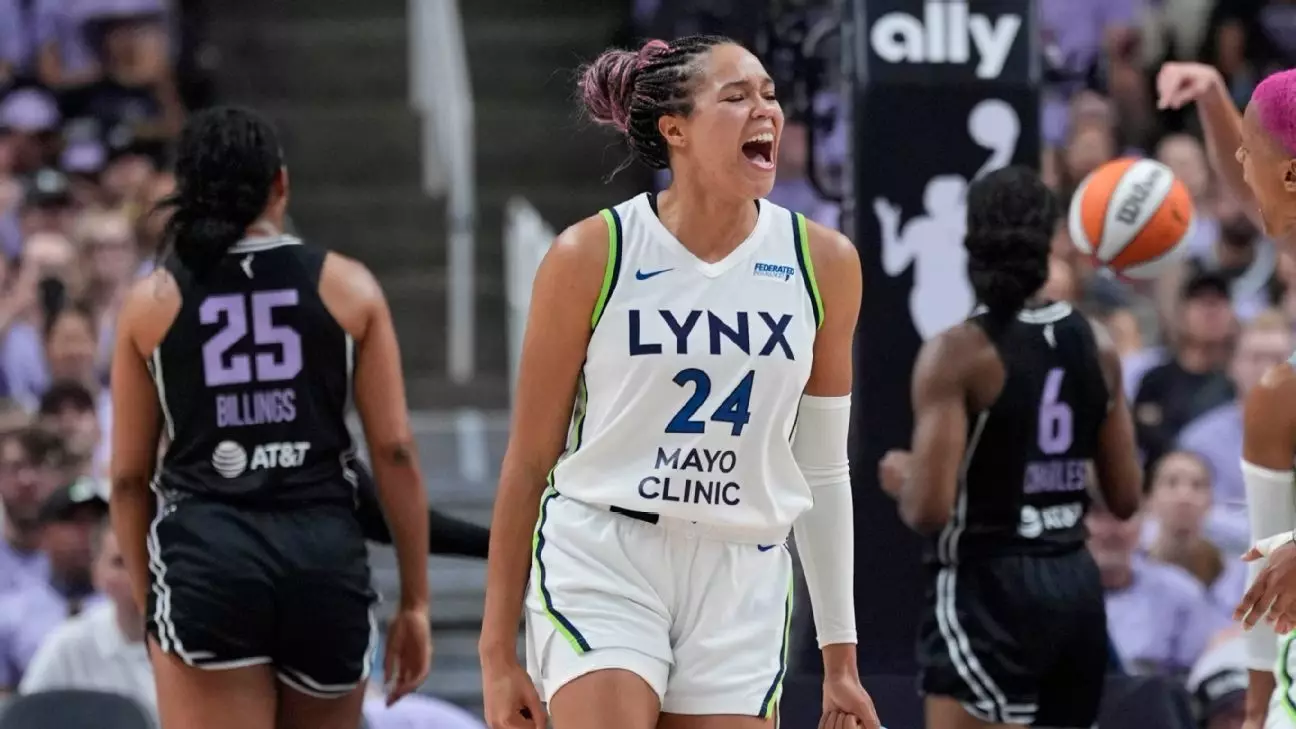In the high-stakes world of professional sports, victory is often attributed to talent, strategy, and physical prowess. However, beneath the surface lies a fundamental truth: relentless resilience and mental toughness are what truly separate winners from also-rans. The recent dramatic comeback by the Minnesota Lynx against Golden State’s Valkyries exemplifies this principle vividly. They faced insurmountable odds, trailing by 14 points at the start of the final quarter—an almost certain defeat in the eyes of many. Yet, it was their unwavering resolve that sparked an extraordinary turnaround, transforming despair into victory within minutes.
This game showcased that when everything appears lost, the true character of a team emerges. Minnesota’s shift from passive spectators of their own downfall to active architects of their salvation reveals that resilience isn’t merely a desirable trait; it is the very essence of greatness. Triumph arises not solely from the ability to execute plays, but from the capacity to dismiss doubt, elevate effort, and refuse to accept defeat, regardless of how bleak the situation seems. These moments are the crucibles that forge champions—those who refuse to let circumstances define their fate.
Breaking the Myth: Leadership and Strategy Marred by Overconfidence
While resilience is central, effective leadership and strategic adjustments are equally crucial. The Lynx coach, Cheryl Reeve, emphasized the importance of persistence, urging her team not to give up no matter the score. Her words resonate deeply because they challenge the often-misunderstood notion that victory hinges solely on talent. Instead, she reminds her players that perseverance and belief in oneself are vital components of success. Her leadership underscores a subtle but powerful message: mindset is as important as game plans.
Minnesota’s late-game surge — outscoring Golden State 26-11 — wasn’t just a coincidence; it was a testament to their tactical discipline and mental fortitude. The coaching staff recalibrated their approach, emphasizing aggressive defense—contesting shots and forcing turnovers—and capitalized on open opportunities on offense. Their ability to adapt rapidly illustrates that victory belongs not just to the naturally talented but to those willing to learn, adjust, and fight with tenacity. It’s a stark rebuttal to narratives that glorify innate talent as the sole determinant of success, instead highlighting the importance of grit and strategic discipline.
The Illusion of Instant Gratification in Success
One of the most insidious traps in competitive sports—and arguably in broader societal pursuits—is the myth of instant success. The Lynx’s comeback, while inspiring, was the result of sustained effort and mental resilience cultivated over years. It reminds us that real achievement often involves enduring setbacks, enduring pain, and refusing to capitulate when circumstances seem stacked against us. The players’ ability to remain focused and motivated when the clock was ticking down illustrates that perseverance, not luck, is the backbone of meaningful accomplishment.
Furthermore, the game underscores that victory often requires sacrifice and patience. Just like life, sports present prolonged periods of adversity that test our resolve. Moving beyond momentary efforts and investing in long-term resilience enables individuals and teams alike to emerge stronger from setbacks. It’s a reminder that the most transformative victories are born out of sustained dedication rather than shortcuts or complacency.
The Center-Left Perspective: Championing Equity and Support for Resilient Structures
Within a center-wing liberal framework, this narrative of resilience is more than a story of athletic grit—it reflects society’s need to foster supportive environments that cultivate perseverance. Just as a team relies on strong leadership and cohesive strategy, communities and institutions must build resilience through equitable policies, accessible resources, and social safety nets. Success is not solely a matter of individual effort but also that of society’s collective commitment to leveling the playing field.
The Lynx’s resilience demonstrates the power of a supportive team environment—coaching, encouragement, and tactical flexibility. Similarly, society benefits when frameworks are in place to support ongoing development, especially for marginalized groups facing systemic obstacles. The game’s message encourages us to challenge narratives that attribute success solely to innate talent or individual effort, emphasizing instead the importance of fair opportunities and societal structures that enable perseverance.
This story of resilience in the face of adversity is a clarion call for a reevaluation of what it means to succeed. It reminds us that greatness isn’t simply handed to those born with privilege or talent; it is forged through relentless effort, mental toughness, and strategic adaptation. Whether in sports, politics, or everyday life, the capacity to withstand setbacks and persist ultimately defines the true champions among us. Embracing this mindset fosters a more inclusive, equitable future where perseverance is valued above all else.


Leave a Reply